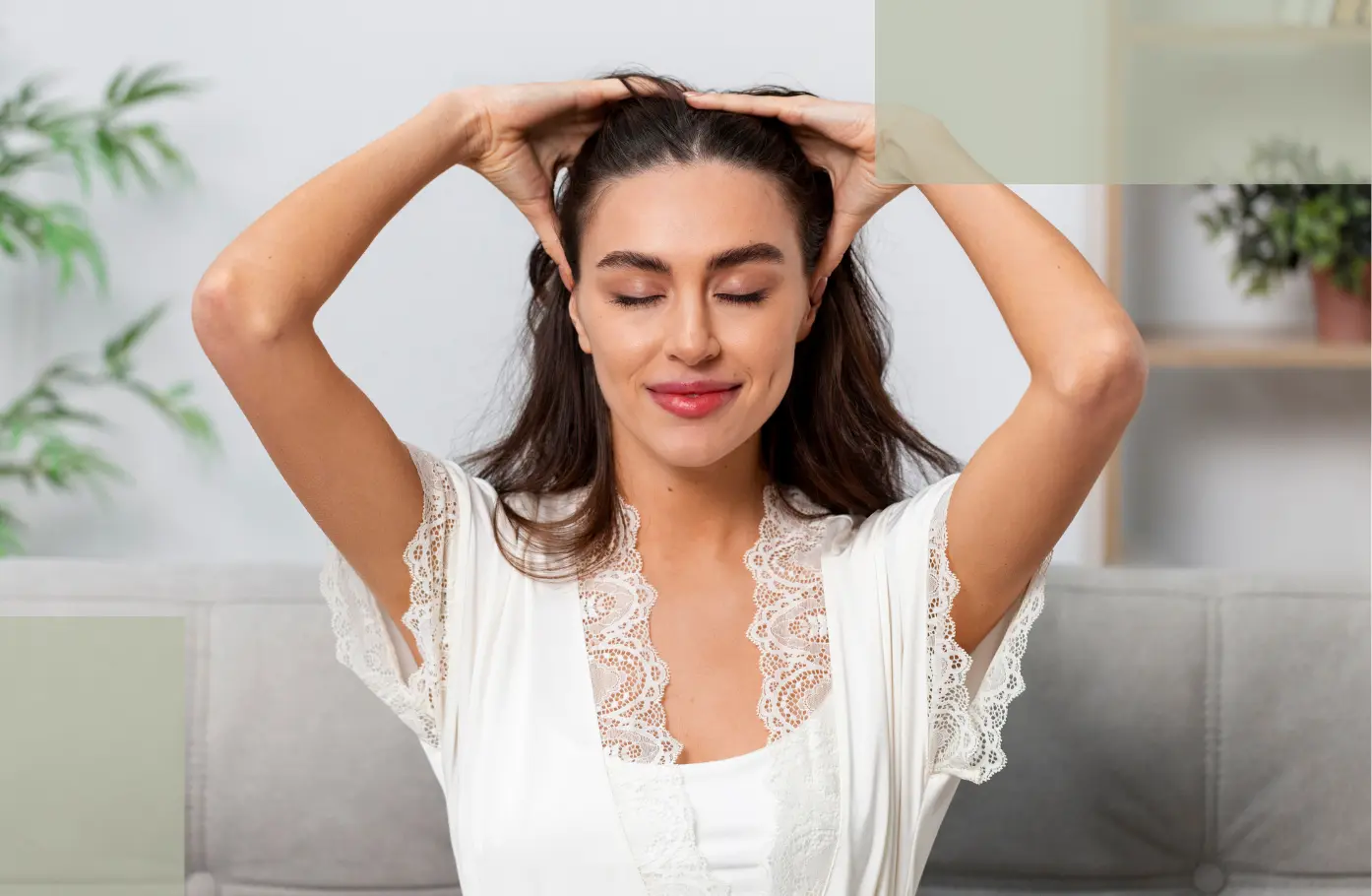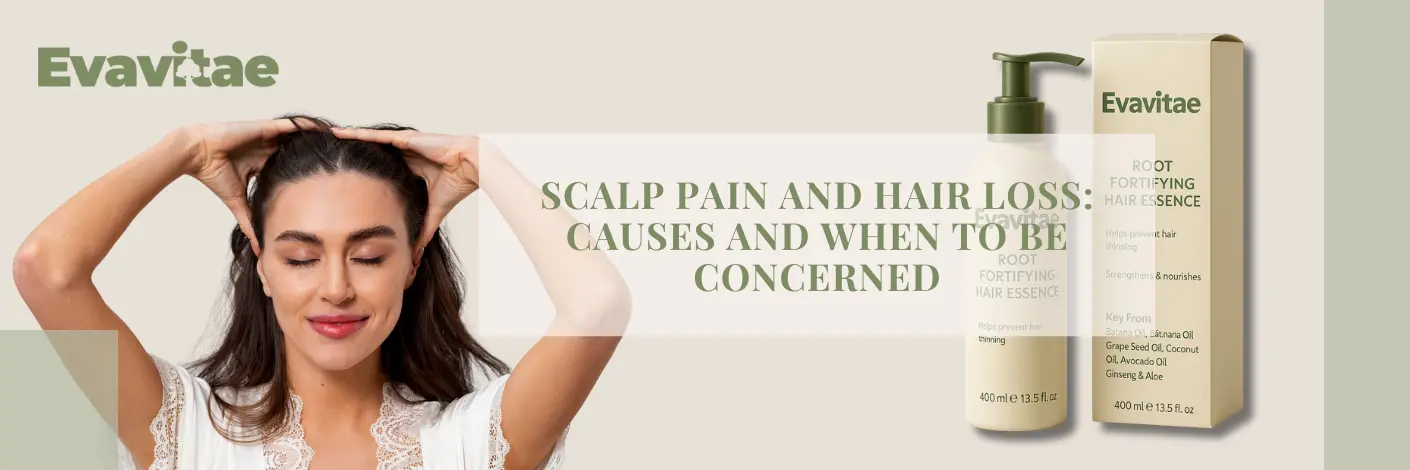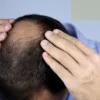
Many people experiencing hair loss also report an unusual symptom—pain or tenderness on the scalp. This discomfort can range from mild sensitivity to sharp, burning pain, and is often accompanied by increased hair shedding. But what causes scalp pain along with hair loss, and when should you seek help?
In this blog, we’ll explore the possible causes of scalp pain with hair loss, what signs to watch for, and gentle strategies to care for your scalp. If you’re searching for a soothing hair care routine or simply want to understand what’s happening to your scalp, read on.
What Is Scalp Pain?
Scalp pain is a form of tenderness, tightness, or discomfort felt when touching, combing, or even moving your head. It may occur:
- With or without visible inflammation
- Before or during hair shedding
- In patches or across the whole scalp
Scalp pain is not a standalone diagnosis—it’s a symptom. And when it’s paired with hair loss, it’s essential to look at the underlying causes.
Common Causes of Scalp Pain with Hair Loss
1. Scalp Inflammation (Folliculitis, Dermatitis, Psoriasis)
Inflammatory skin conditions like seborrheic dermatitis, folliculitis, or psoriasis can cause:
- Red, flaky, or oily patches
- Scalp itchiness or burning
- Weakened hair roots and patchy hair loss
These conditions affect the health of hair follicles, making them more susceptible to shedding. If left untreated, inflammation may lead to scarring and permanent damage.
Persistent scalp pain can sometimes be linked to inflammatory conditions like seborrhoeic dermatitis. Learn how to calm your scalp and manage seborrhoeic dermatitis-related hair loss through gentle care and balanced cleansing habits that help reduce flare-ups over time.
🔗 American Academy of Dermatology Association – Scalp conditions
2. Telogen Effluvium Triggered by Stress or Hormones
In telogen effluvium, hair prematurely enters the resting (telogen) phase and falls out. This condition is often triggered by:
- Emotional stress
- Postpartum hormone shifts
- Illness or surgery
- Crash dieting or nutritional deficiency
Interestingly, some individuals report scalp tenderness or “trichodynia” before or during telogen effluvium episodes. While not dangerous, it can be alarming.
🔗 National Institutes of Health – Telogen Effluvium Study
3. Tight Hairstyles or Mechanical Trauma
Constant pulling or friction from hairstyles like tight ponytails, braids, or extensions may lead to:
- Tension on hair follicles (traction alopecia)
- Sore or inflamed scalp
- Localized hair loss at the hairline or temples
Over time, this can damage follicles and inhibit regrowth.
4. Scalp Sensory Nerve Sensitivity
In some cases, scalp pain is neuropathic, meaning it originates from nerve irritation rather than visible inflammation. This condition, trichodynia, may present with:
- Burning or tingling on the scalp
- Pain when hair is touched or moved
- Emotional stress correlations
Trichodynia has been linked to anxiety and depression, creating a loop between stress, discomfort, and increased hair shedding.
🔗 DermNet NZ – Trichodynia
When to Seek Help
While occasional scalp tenderness may result from a new shampoo or hairstyle, persistent scalp pain and hair loss warrant a professional evaluation. You should consult a dermatologist if you notice:
- Scalp sores, flaking, or pus
- Rapid or patchy hair loss
- Scalp swelling or discoloration
- Pain that doesn’t improve with gentle care
A doctor can rule out scalp infections, autoimmune conditions, or hormonal issues that may need medical treatment.
Gentle Care Tips for Scalp Sensitivity
While medical intervention may be necessary, some daily care practices can help soothe your scalp and support healthy hair.
1. Switch to a Sulfate-Free, Fragrance-Free Shampoo
Harsh shampoos with sulfates, essential oils, or artificial fragrance can aggravate a sensitive scalp. Instead, choose a gentle formula like:
Batana Oil-Based Shampoos
Batana oil is rich in fatty acids and antioxidants. It nourishes the scalp, supports the hair shaft, and is naturally free of irritants. This ancient ingredient, derived from the American palm tree, is gaining recognition for its soothing benefits in sensitive scalp care.
🔗 Journal of Cosmetic Dermatology – Plant-based oils and scalp health
2. Incorporate Anti-Inflammatory Scalp Oils
Look for oils with scalp-calming properties:
- Batana oil: deeply restorative, reduces inflammation
- Jojoba oil: mimics natural scalp oils
- Aloe vera oil: cooling and soothing
Apply a small amount to the scalp before bed, let it sit overnight, and wash it off with a mild shampoo.
3. Avoid Heat and Tight Styles
- Skip blow-dryers, straighteners, and high-heat tools
- Let your hair air-dry whenever possible
- Choose loose braids or soft clips instead of elastic bands
Minimizing tension reduces the risk of triggering pain and mechanical damage.
4. Check Your Diet and Stress Levels
Nutrients that support scalp and hair health include:
- Iron
- Vitamin D
- Zinc
- Omega-3 fatty acids
A balanced diet, stress management, and proper sleep are crucial. Chronic stress, in particular, is a well-known cause of both scalp discomfort and hair loss.
5. Be Patient with the Process
Hair regrowth and scalp healing take time—especially if your discomfort is linked to an underlying condition or chronic stress. Avoid cycling through different hair products too quickly, as this may worsen sensitivity. Instead, commit to a consistent, gentle care routine for at least 6–8 weeks before expecting visible improvement.
If your scalp is healing from inflammation or overuse of styling products, less is often more. Minimal handling, soft brushing, and using a silk pillowcase can all reduce mechanical stress. A calm environment, both inside and out, gives your scalp the best chance to recover.
6. Track Your Progress and Know When to Switch Strategies
Keeping a hair and scalp journal may help identify what’s helping—or harming—your scalp health. Record changes in shampoo, styling habits, emotional stress, and diet. If you’ve addressed common triggers and still experience persistent pain or hair loss, it’s time to speak with a dermatologist.
Some conditions, like scarring alopecia or autoimmune disorders, require medical intervention. Early diagnosis is crucial to preserving hair follicles. So while gentle care is essential, don’t hesitate to escalate your concerns if symptoms worsen.
Final Thoughts
Scalp pain combined with hair loss isn’t just physically uncomfortable—it can also impact confidence and well-being. The good news? With the right care and awareness, many cases are manageable.
Remember:
- Investigate the root cause—whether it’s inflammation, tension, or stress
- Use gentle, nourishing scalp products (especially batana oil-based)
- Seek professional help if symptoms persist
A healthy scalp is the foundation of healthy hair. Don’t ignore the signs your scalp is sending you.
Finally, it’s recommended that you review the ingredient list of Evavitae products and decide whether to give them a try.
🌿 Support your hair’s natural growth with gentle, science-backed care — explore the Evavitae Root Fortifying Hair Essence.
💆 Ready to refine your daily scalp and hair care ritual? Explore restorative guides in the Scalp Care & Routine Hub.
Discover gentle, fragrance-free options and expert guidance in our Postpartum Hair Recovery Guide.
📚 References (APA Format)
American Academy of Dermatology Association. (n.d.). Hair loss: Who gets and causes. Retrieved from https://www.aad.org/public/diseases/hair-loss/types/alopecia-areata
DermNet NZ. (n.d.). Trichodynia. Retrieved from https://dermnetnz.org/topics/trichodynia
National Institutes of Health. (2019). Telogen effluvium: A review. Retrieved from https://www.ncbi.nlm.nih.gov/pmc/articles/PMC6691938/
Journal of Cosmetic Dermatology. (2023). Plant-based oils for scalp and hair care. Retrieved from https://onlinelibrary.wiley.com/doi/10.1111/jocd.14375
Evavitae products are now available exclusively at www.evavitae.com.




Add comment
You must be logged in to post a comment.